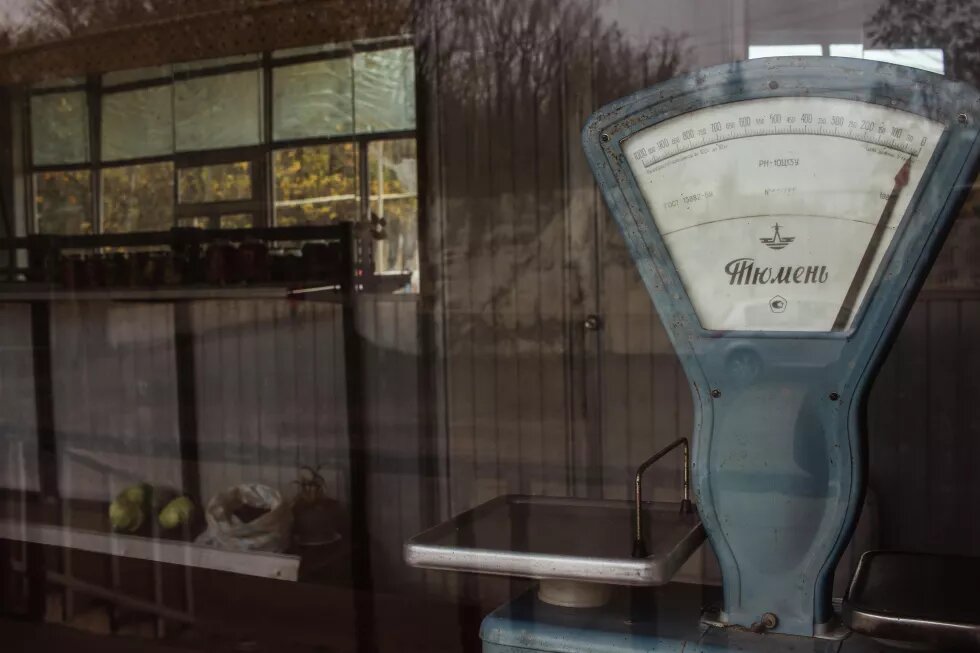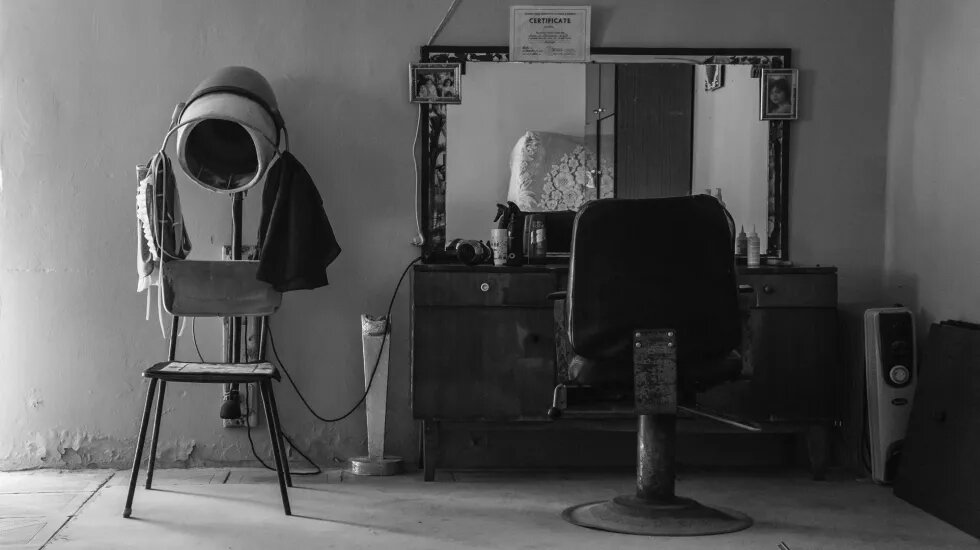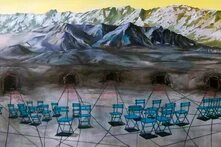
Nostalgia for the Soviet era is out of fashion in Azerbaijan, just as it is in the rest of the post-Soviet countries. Looking back at the old days with sympathy is rarely encouraged, if not shunned upon, yet there are still those that do. The authors of this article tried to find out what makes them miss the USSR.

The decolonial discourse has acquired a new relevance against the background of Vladimir Putin’s openly declared imperial ambitions and Russia’s military invasion of Ukraine. And even though Putin’s ambitions are closer to reviving the Russian Empire rather than the Soviet Union (take for instance his glorification of Peter the Great, and accusations that Lenin had “invented Ukraine”), in de and post-colonialism contexts we still discuss the USSR, stressing the need to let go of the Soviet legacy, to sever the umbilical cord that connects the countries of the post-Soviet space with Russia and one another.
In this environment, Soviet nostalgia is an inappropriate sentiment, one few people in Azerbaijan openly admit to. At the official level, the attitude towards the Soviet era in Azerbaijan is dismissive and negative. The era is presented as bleak times of Russian occupation with little or no rights. Exceptions are made for speaking of the period after 1969, when Heydar Aliyev took the post as the communist leader of the Soviet Republic.
Methodology
The purpose of this short study was to determine not the scale but the nature of Soviet nostalgia in Azerbaijan. In total, more than twenty respondents who identified as experiencing nostalgia for the Soviet times participated. We excluded potential respondents who adhere to left-wing views or identify as leftists and therefore, are interested in the Soviet past of the country, study or romanticize it. The respondents’ names have been changed.
The semi-structured interview method was used, where only some of the questions were prepared (e.g. “What was good in the Soviet period?”, “What is the first thing that comes to your mind when you mention the Soviet period?”), while others were prompted by the answers of each respondent. We avoided leading questions that elicit unambiguous responses. For this reason, for instance, we did not discuss Stalinist repressions for as long as the respondents themselves avoided the topic.
It is worth noting here that the topic of the repressions is not popularly discussed in Azerbaijan. The public knows just the names of the most famous victims, a number of intellectuals, poets and writers, the likes of Mikayil Mushfig and Huseyn Javid. The Museum of Victim of Political Repression opened its doors in 2019. On social media, this topic comes up in context of another - current arrests on political grounds. Those that oppose the government draw parallels between Stalinist repressions and contemporary ones, using the hashtag #davamedir37 which translates as “year 37 continues”.
“Thought it will be better, but it turned out worse”
In short, our respondents were those normally seen as “average” or “ordinary people”. For this study it meant they are not interested in politics, do not take part in social or political life, and do not have and never have had any special privileges. The sample included 50+ aged respondents who have lived a part of their adult life in the USSR, as well as the younger generations of those who lived in the Soviet Union as children and have little memory of it or those born after its collapse. As far as we can judge, the nature of Soviet nostalgia coincides across groups on all main points, and has neither a romantic nor an ideological connotation but rather lies mainly in the socio-economic plane. The main sentiment can be distilled to a simple thesis: “Life was better under the Soviets than it is now”. The Azerbaijanis we interviewed look back at the Soviet period, not necessarily as a perfectly wonderful one, but as one that wins when compared with the present.
“You know what’s the worst? We thought that after gaining independence it would be much better. We were told: “The Russians are taking our oil, and if money is left to us, everyone will become rich.” And we believed in it, thought it would be better further along … But it turned out worse. And now we tell our children about that time, saying “what a good time it was.” (Firuza, 62 years old, teacher)
One main category that the older generation appeals to when discussing the advantage of the Soviet era over the current one is the category of social inequity. According to the respondents, if in Soviet times there was at least some equity, there is none today. This refers to a more or less even distribution of resources and material wealth, the absence of such a sharp difference between social classes as it is now, the freely available subsidized health care and education, and social mobility for the lower classes.
“If you fell ill, you were treated for free in the hospital. And now hospitals are free only on paper, but everywhere they ask for bribes. And this also applies to public hospitals. And the best doctors work in private clinics.” (Kyamal, 57 years old, tutor)
Respondents are aware that corruption had also existed in the USSR, but they regard it as having been more “controlled” and at an “acceptable” scale.
“I'm not saying that there was no bribery back then. But not to the extent that it is now. Maybe someone took bribes on the sly, but if you complain, he was punished. There was a central administration, and local leaders were afraid that you would roll a statement on them to the center. (Aydin, 61 years old, agronomist by education, did not work in his profession since the 90s)
According to some respondents, in modern Azerbaijan, class differences manifest themselves not only during life, but also after death.
“Now even the dead are divided into rich and poor. Go to the cemetery, look at the tombstones. Some of them are small, simple, and some look like the tombs of the pharaohs. They didn't do that before. If you ask me where the difference between rich and poor is most pronounced, I will say that in the cemetery. (Oktay, 58, former military lawyer, now retired)
The respondents also warmly reminisce about the almost complete absence of unemployment, guaranteed employment after graduation and access to free housing from the state, even if you had to wait in line for years. In other words, they long for social and economic security, which is not felt now.
Most respondents agree with the official postulate that Azerbaijan was a colony of Russia in its Soviet period. But, in their opinion, the Russians were “good colonists”, and, although Azerbaijan had lost its independence, it generally gained from having become part of the USSR. They refer to the construction and development of cities, the electrification of the republic, the subway and other elements of urbanization and technological progress. But this "list" does not include such important changes introduced by the Soviet government as, for example, secularization and the female emancipation associated with it.
“Yes, of course, our country was occupied. But it cannot be said that the Russians did nothing but torture us. They have developed our country. They created a good system of education and healthcare for us, and built cities. And they did not make us slaves, as other empires did. Should the Union have collapsed? I think yes. Do I miss that period? Also yes. It's good that we have gained independence. But it was not necessary to destroy all the good that there was then. (Bahram, 62 years old, specialized secondary education)
“The main thing is that there was no unemployment”
The younger generations of Azerbaijanis, for the most part, have inherited Soviet nostalgia from the older ones. Not having lived Soviet experience themselves and not studying this period purposefully, unlike the leftists, the average, “apolitical” youth form their idea of the USSR from the words of their parents and older relatives. Accordingly, the criteria for the advantages of the USSR for young people are still the same: economic security, social equity, the absence of sharp class differences, and employment. If a young man cannot find a job and hears from his father or uncle that they did not have such problems at his age, he concludes that it was better then than now.
Like the older generations before them, the younger ones consider access to free housing as one of the main advantages the Soviet Union had to offer. And if the elders at least had time to take advantage of this opportunity, then for the young, who are forced to solve the housing problem on their own, the very idea that the state can simply decide to give you an apartment seems fantastic.
To these young people, living in an independent country does not seem to be a sufficient “compensation” for all the economic and social difficulties. Moreover, this independence, in their opinion, is very conditional.
“Father says that then the Russians were in charge. And now we're in charge, aren't we? Foreigners who work here earn 5 to 10 times more than we do. Then [the one’s in charge] were the Russians, and now the Turks, the Americans, the British. But then at least they gave us our share too.” (Goshgar, 29 years old, teacher by training, currently working in the sales department of a private firm)
Young people hold true that they are less fortunate economically and socially than their parents had been. In this sense, if for the older generations Soviet memories are the space of their “happy past”, then for young people these “borrowed” memories are the space of the failed “happy present”, which they were deprived of:
“I often argue about this with my father. I ask: if everything was so good, why did you let the Union collapse? No one was trying to defend it back then. Everyone rejoiced at independence. Though after a couple of years they came to their senses, it was too late. So, in my opinion, now the older generation has no right to complain.” (Arzu, 32, graduated from medical college, not currently working)
"Falling morals"
The older respondents are also inclined to associate the collapse of the USSR with the arguably unrelated issue of liberalization of social standards in modern day Azerbaijan.
For instance, they complain about the “fall of morals” and complain that there are many smoking and “openly” dressed women in Baku. Yes, in the USSR, there really was quite strict social control and requirements for appearance. But, firstly, the criteria have changed over time, and the norms of the 50s are incomparable with the norms of the 70s. And, secondly, not all the union republics had the same moral standards, and even in Georgia, neighboring Azerbaijan, they were more liberal. Furthermore, some respondents believe that the end of the Soviet era was the end of the traditional Azerbaijani family.
“In my opinion, the biggest loss we have suffered since the collapse of the Soviet Union is the loss of our family values. Today's youth do not want to start a family. And not just for economic reasons. Even those who earn good money get married later [than in Soviet times]. The family has lost its significance. (Firuza, 62 years old)
The paradox of this statement lies in the fact that it was in the post-Soviet period, starting from the 90s, that the number of early marriages increased in Azerbaijan (just as they did in some other countries of the region), and the country has been unsuccessfully trying to solve this problem so far. Further, those old enough to have experienced Soviet life as adults manage to miss a thing seemingly unattractive to miss at all - the censorship of the media. They complain about the dominance of untalented "stars" or stupid shows on television. This adds to the same discourses on the “moral decline” and the general level of popular culture.
“[Before] television and the press did not offer anything harmful. There was an [artistic] council that didn't air anything that could cause harm. Now we are criticizing censorship. But I think that censorship is really needed in certain issues.” (Oktay, 58 years old)
Surprisingly, some younger respondents agree with this opinion. This is not surprising as young people, for the most part, deride modern Azerbaijani television even worse than their parents do. Of the entire Soviet television broadcast, they only remember cartoons, but they believe that then the quality of the programs was better, and they do not exclude the possibility that it was precisely because of strict state control.
Respondents of both age groups lose sight of the fact that, in fact, state censorship on Azerbaijani television still exists, and in terms of its rigidity it is not much inferior to the Soviet one. Only its manifestations are different.
The city that no longer exists
A rather delicate issue that comes up in our study is that since the collapse of the USSR, flows of people had flooded capital Baku, driven from the provinces by unemployment as well as displacement as a result of the First Karabakh War.
“Original” Baku residents of all ages (even those of the first generation) consider this a turning point that had changed the face of the city and made it more provincial.
“Now people are spitting on the street, shouting in public transport, motorists are constantly honking unnecessarily. This was not the case before. Because there was an urban culture. There were, of course, visitors from the provinces, but they were mostly students, they got used to the urban culture. And those who come now do not get used to it. Too many people came at once, Baku could not cope with it.” (Azad, 56 years old, secondary education, worked in various fields, including small business)
True, when speaking about this, the respondents emphasize in every possible way that they do not harbor hostility towards “newcomers” and do not blame them for anything. The fault is political and economic cataclysms, which, in turn, occurred due to the collapse of the USSR.
On the other hand, we heard a mouthful about construction officials. As respondents say, beautiful old buildings are being demolished in Baku, green spaces are being cut down, unsightly constructions being built in their place, urban planning norms are not observed, and neither infrastructural nor aesthetic components are taken into account.
“No plan, everything is somehow ridiculous, the colors are strange. Even under the guise of restoring beautiful Soviet buildings, they repaint them, cover them up with something, and do strange things with them. Our biggest cultural loss is Baku itself. Those who made this city like this are uncultured people without a sense of taste.” (Jamal, 57 years old, teacher)
Trams have become an unspoken symbol of “old Baku” among the predominantly Russian-speaking part of Baku residents. This type of public transit disappeared from the capital of Azerbaijan in the early 90s, and since then part of society has been desperately nostalgic for it. Others (also, coincidentally, Russian-speaking) mock it, annoyed with its on-the-nose sentimentality, so over time, the “Baku tram” had turned into a kind of meme. Still, everyone agrees that the trams themselves are good and convenient and, moreover, not directly related to the Soviet government. All these discussions amount to nothing more than just that, since the authorities are clearly not planning to return trams to Baku.
However, criticism of modern Baku city planning cannot be considered solely an expression of Soviet nostalgia. Unlike the problems of unemployment or social stratification, this issue is debated openly, at all levels. Such criticism originates, among others, from those who never show sympathy for the USSR and parallels with the Soviet period are drawn simply because it was under the USSR that Baku became a full-fledged big city.
The language of memory
In everyday life, Soviet traditions are present in the language and way of life of Azerbaijanis at sublevel and in a transformed form. Soviet toponyms, which have long disappeared from the map of Azerbaijan, continue to be used by both the older generations (which is understandable) and the youth (many of whom hardly know the meanings of these toponyms). “Circle of Karl Marx”, “Baksovet”, “Worker’s Avenue”, “Park of 26 [Baku commissars]” - all these places in Baku, as a rule, continue to be called in the Soviet manner out of habit. However, some of these names have not just changed, but managed to change their semantic load to the exact opposite. Say, if there are no complaints against Karl Marx in Azerbaijan, then 26 Baku commissars, who were considered heroes in Soviet times, are now officially transferred to the rank of thugs and enemies of the Azerbaijani people. In 2017, cafe “26” located not far from this square was closed with a scandal.
As for the former Worker’s Avenue (Rabochiy Prospekt, named after local oil workers), the renaming of it to Nobel Avenue (foreign oil capitalist) struck some of our respondents as particularly unfair and symbolic. At the time of writing, this avenue is named after November 8, the date when Azerbaijan took the city of Shusha during the Second Karabakh War.
Soviet phrases and expressions are often used in speech, both in Russian and (less often) in Azerbaijani, in an ironic sense. Also, the Azerbaijani-speaking part of the population actively quotes popular lines from Azerbaijani films of the Soviet period, which are still considered much better than modern ones. After the collapse of the USSR, Azerbaijani cinematography fell into a coma, which it still cannot awake from, so there are no popular modern films that are widely referenced in the same way. Some superstitions, borrowed by Azerbaijanis from Russians during their life in a “communal country”, also turned out to be tenacious. For example, many Azerbaijanis (even those who do not speak Russian at all) try not to get married in May so that later you don’t “toil all your life”, as a Russian proverb warns. There is no word for “toil” in the Azerbaijani language, but Azerbaijanis take marriage seriously and, just in case, play it safe.
If not back, then to the side
Talking with the respondents, analyzing their answers, and also based on our own observations, we come to the conclusion that the attitude towards the Soviet period in Azerbaijan (not counting the official rhetoric and the opinion of the consciously left-wing part of society) has nothing to do with ideology and the political system. These components of the Soviet period are generally not considered when assessing it. There is also no particular idealization of that time, except for the predictable idealization of one's own youth among the older generation and childhood among the youth.
Soviet nostalgia in Azerbaijan is a social nostalgia, which is based not on the desire to bring back the past, but dissatisfaction with the present. Among the older generation, it is caused, among other things, by disappointment and frustration because they have not yet been offered anything worthy to replace the destroyed social institutions. Young people, also dissatisfied with the current state of things, turn to the Soviet past as the closest and most accessible example of how it could be otherwise. Both old and young would not willingly look back at the Soviet Union, which they know they cannot put together again, if the present was comfortable enough and the future would inspire at least some optimism.
But the alternative to looking back in the case of Azerbaijan is looking away, towards the countries of the “first world”, Europe and the USA and others with their quality of life. For many, this option is preferable to nostalgia, because, unlike the USSR, you can at least leave for Canada, Europe, or the USA.
The content of this article is the sole responsibility of the authors and can in no way be taken to reflect the views of the Heinrich Boell Foundation Tbilisi Office – South Caucasus Region.


